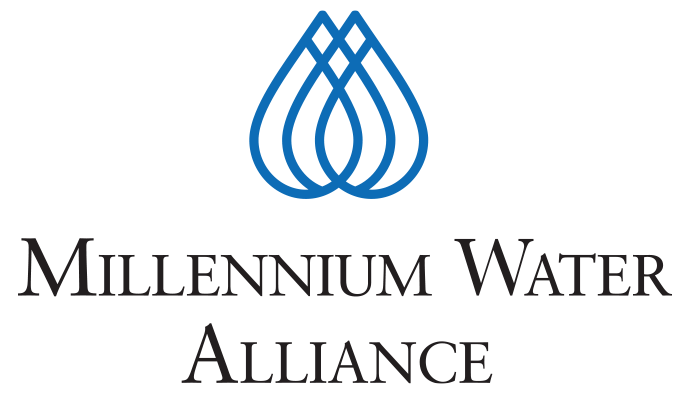The Millennium Water Alliance is at the forefront of championing water security in Kenya through the Sustainable Transformational and Accessible Water Interventions (STAWI) Mashinani Activity. This initiative, funded by USAID and valued at $12.6 million USD, seeks to make transformative strides in water management across nine arid and semi-arid counties in Kenya over five years. Here are the highlights followed be a description:
- Budget: 12.6 Million USD
- Duration: 2024-2026
- Geographical Focus: Targeting Garissa, Isiolo, Kitui, Makueni, Marsabit, Samburu, Taita Taveta, Turkana, and Wajir counties, regions critical for their contribution to Kenya’s economy and highly vulnerable to climate change.
- Core Objectives: Enhancing resilience and capacity at local levels for sustainable management of water resources, addressing social, economic, and environmental needs.
- Key Local Implementing Partners:
- Pastoralist Community Initiative and Development Assistance (PACIDA)
- Catholic Diocese of Garissa
- Arid Lands Development Focus (ALDEF Kenya)
- Merti Integrated Development Programme (MID P)
- Deutsche Welthungerhilfe E.V (WHH)
- Catholic Diocese of Kitui
- Catholic Diocese of Lodwar
- Management of Arid Zone Initiative and Development Option International (MAZIDO).
- Strategic Approach:
- Localization: Empowering local communities and governments to lead sustainable water management efforts.
- Comprehensive Focus: Addressing water governance, service delivery, productive water use, and collaborative learning and adaptation.
- Expected Outcomes: Improved governance, sustainable water services, efficient water use for productivity, and strengthened collaborative efforts across stakeholders.
Project Description
The Millennium Water Alliance is proud to lead the Sustainable Transformational and Accessible Water Interventions (STAWI) Mashinani Activity, a pioneering initiative funded by the U.S. Agency for International Development (USAID) with a budget of $12.6 million USD. This five-year program is set to transform water security across nine arid and semi-arid counties in Kenya: Garissa, Isiolo, Kitui, Makueni, Marsabit, Samburu, Taita Taveta, Turkana, and Wajir. These regions, characterized by their vulnerability to climate change and historical neglect, are crucial for Kenya’s economy due to their significant contribution to livestock and tourism.

Program Goals and Objectives
The STAWI Mashinani initiative is dedicated to fortifying the resilience and capacity of local institutions and communities in Kenya to manage their water resources more effectively. By focusing on both domestic and productive uses, the program aims to create a comprehensive framework for water security that addresses the intertwined challenges of resource scarcity, conflict, and poverty. The program’s objectives include:
- Enhanced Water Governance: Developing robust governance structures at the county level to ensure equitable water distribution and sustainable management practices.
- Community Empowerment: Empowering communities through education and participation in water management decisions, fostering a sense of ownership and responsibility.
- Infrastructure Development: Building and rehabilitating water infrastructure to ensure reliable access to clean water, particularly in remote and underserved areas.
- Environmental Conservation: Implementing strategies for the conservation of water resources and the natural environment, ensuring the sustainability of water supplies for future generations.
Localization and Community Engagement
Localization is the cornerstone of the STAWI Mashinani program, emphasizing the empowerment of county governments and local actors to spearhead change. This grassroots approach ensures that interventions are tailored to the unique needs of each community, fostering sustainable solutions. Key aspects of this strategy include:

- Capacity Building: Strengthening the skills and knowledge of local institutions and community leaders in water management and conservation techniques.
- Inclusive Participation: Encouraging the active participation of all community members, including women, youth, and marginalized groups, in water-related decisions and initiatives.
- Knowledge Sharing: Facilitating the exchange of best practices and lessons learned among communities, enhancing the overall effectiveness of water management strategies.
Key Areas of Focus
- Water Governance Improvement: We are committed to enhancing the governance of water resources by improving coordination between local Water Resource Authorities and community water associations, thereby increasing water availability and fostering peaceful conflict resolution.
- Sustainable Water Service Delivery: Our efforts aim to boost the sustainability of water service delivery by upgrading the operational efficiency of rural water service providers and ensuring the reliable supply of safe water.
- Water for Productivity: The program focuses on optimizing water usage for agricultural and pastoralist activities through the adoption of climate-smart technologies, thereby enhancing the livelihoods of women and youth in these communities.
- Collaboration and Learning: STAWI Mashinani emphasizes collaborative efforts and shared learning, working closely with county governments, local partners, and communities to ensure adaptive and effective program implementation.
Program Implementation
Through an Integrated and Inclusive Water Security approach, STAWI Mashinani tackles the complex challenges of water management, linking natural and built systems, and addressing both rural and urban needs. The program’s implementation strategy involves:
- Integrated Water Management: Adopting a holistic approach to water management that considers all aspects of the water cycle and its impact on communities and the environment.
- Innovative Technologies: Incorporating modern technologies and practices to improve water efficiency, access, and quality, particularly in areas most affected by climate change and resource depletion.
- Strengthened Infrastructure: Investing in the development and maintenance of water infrastructure to ensure long-term sustainability and resilience to environmental shocks.
Impact and Sustainability
STAWI Mashinani is poised to make a significant impact on water security in Kenya, enhancing the resilience of communities to climate-related challenges and ensuring sustainable water management practices. The program’s anticipated impacts include:
- Improved Access to Clean Water: Increasing the availability of safe drinking water, thereby reducing the incidence of waterborne diseases and improving overall public health.
- Economic Growth: Supporting economic development through improved water management for agriculture and livestock, which are key sectors in the targeted regions.
- Enhanced Resilience: Building the capacity of communities and local institutions to respond to environmental shocks and stresses, ensuring a more sustainable and secure future.
